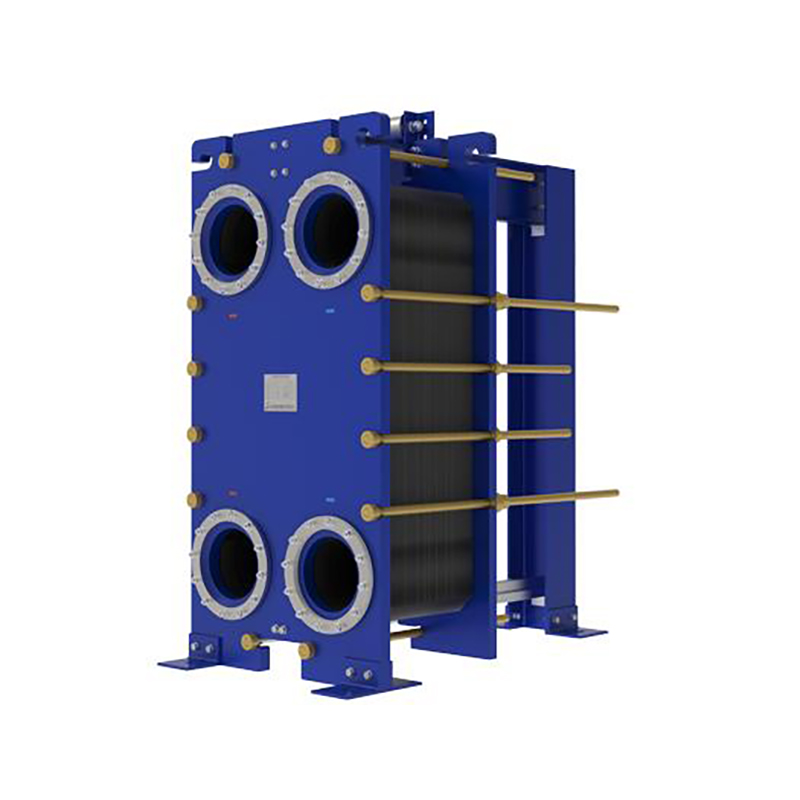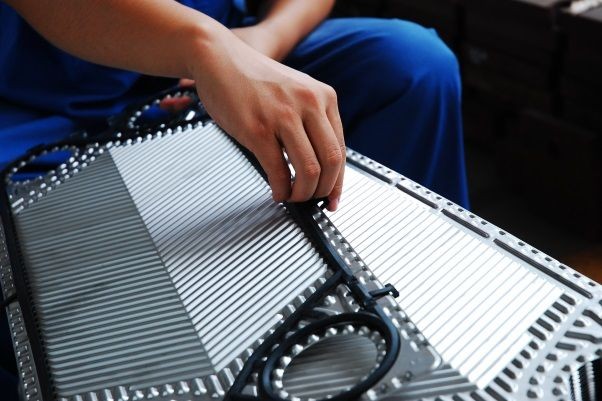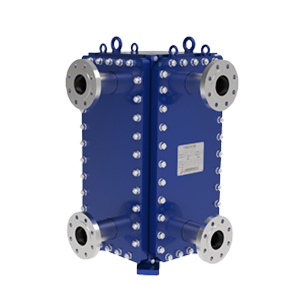5 key roles of plate heat exchanger gaskets.
Plate heat exchanger gaskets perform 5 key roles: ...
More
A shell heat exchanger is a widely used industrial device designed to transfer heat between two or more fluids without direct contact. It consists of a series of tubes enclosed within a cylindrical shell, where one fluid flows through the tubes and the other flows outside the tubes but inside the shell. This design ensures efficient heat transfer, making it ideal for applications in power plants, chemical processing, oil refineries, and HVAC systems. Shell heat exchangers are known for their durability, versatility, and ability to handle high-pressure and high-temperature conditions. Their modular design allows for easy maintenance and customization to meet specific operational requirements.
Shell heat exchangers are engineered to maximize thermal efficiency while minimizing energy loss. They come in various configurations, including fixed tube sheets, U-tube, and floating head designs, each suited for different operational needs. For instance, fixed tube sheet exchangers are cost-effective for clean fluids, while floating head designs are preferred for applications requiring frequent cleaning or handling of corrosive fluids. According to industry data, shell heat exchangers account for over 60% of the global heat exchanger market due to their reliability and adaptability. Advanced materials like stainless steel, titanium, and nickel alloys are often used to enhance corrosion resistance and longevity, ensuring optimal performance in harsh environments.
Shell heat exchangers offer unparalleled advantages in terms of efficiency, durability, and cost-effectiveness. Their robust construction ensures long-term reliability, reducing downtime and maintenance costs. Industries such as petrochemicals, food processing, and pharmaceuticals rely on shell heat exchangers for their ability to maintain precise temperature control, which is critical for product quality and safety. Additionally, their compact design saves space while delivering high heat transfer rates, making them a preferred choice for facilities with limited installation areas.
Choosing a shell heat exchanger translates to significant energy savings and operational efficiency. Studies show that these exchangers can improve thermal efficiency by up to 90%, reducing energy consumption and lowering carbon footprints. For example, in the oil and gas sector, shell heat exchangers are instrumental in recovering waste heat, which can cut fuel costs by 20-30%. Their scalability and compatibility with various fluids—including water, steam, oils, and gases—make them indispensable across industries. With advancements in technology, modern shell heat exchangers now feature enhanced fouling resistance and smart monitoring systems, further boosting their performance and reliability. Investing in a high-quality shell heat exchanger ensures sustainable and cost-efficient thermal management for years to come.
Select the most popular foreign trade service products to meet your diverse needs
Learn more about the dynamics and professional knowledge of the foreign trade industry

Plate heat exchanger gaskets perform 5 key roles: ...
More
A gasket in heat exchanger seals surfaces, blocks ...
More
API 662 defines standards for plate heat exchanger...
More
Compare top frame plate heat exchanger models for ...
More
User reviews show the american standard heat excha...
More
You can see clear differences between welded block...
MoreSelect the most popular foreign trade service products to meet your diverse needs
Explore more content related to foreign trade services

User Comments
Service Experience Sharing from Real Customers
John Smith
Mechanical EngineerThe shell heat exchanger is incredibly efficient and has significantly improved our plant's thermal management. Highly recommended!
Emily Johnson
Process TechnicianGreat product with durable construction. Installation was straightforward, and it performs as expected. Minor improvements in maintenance accessibility would make it perfect.
David Lee
HVAC SpecialistThis shell heat exchanger exceeded our expectations. It handles high-pressure conditions flawlessly and has reduced energy costs by 15%.
Sarah Williams
Plant ManagerReliable and robust design. The heat exchanger integrates well with our existing systems, though the initial cost was slightly high.